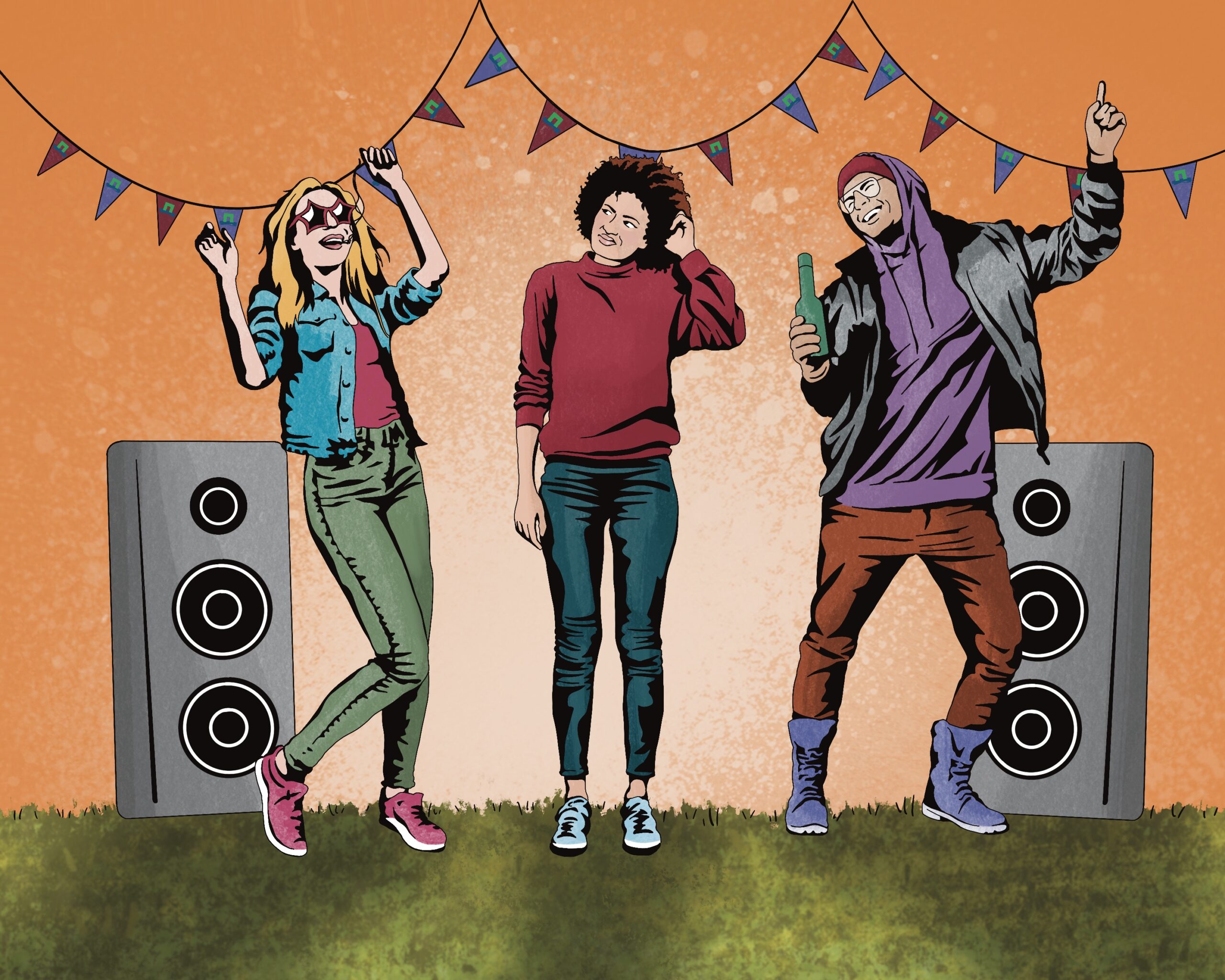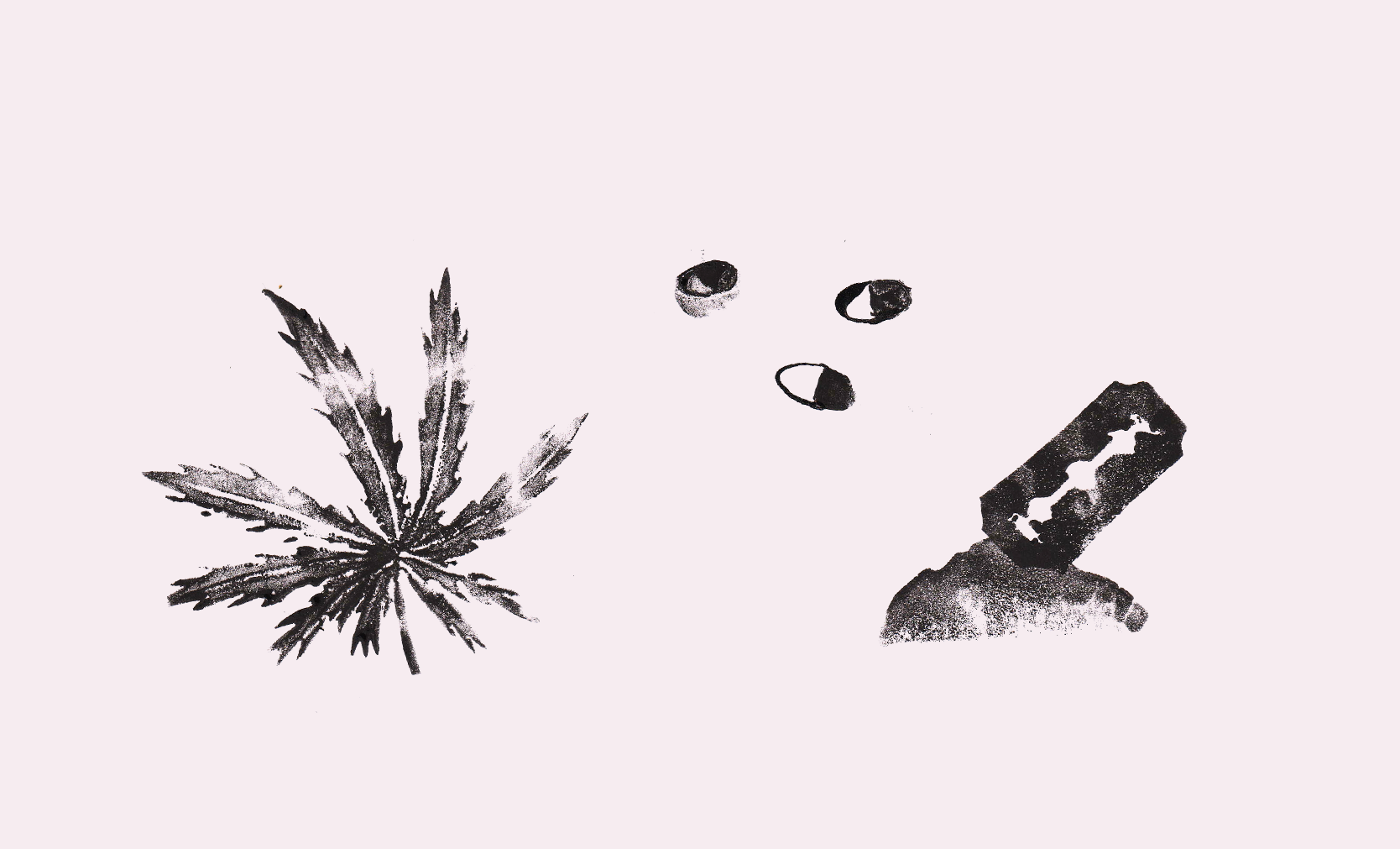Students who don’t live with their parents and are student society members consume far more alcohol and drugs than the average student, according to the recently published report ‘Under the Influence’. Not a surprising conclusion perhaps, but still relevant. After all, Wageningen is the university town with the most students living away from home (23 per cent). Does that mean we are all massively into drink and drugs?
‘Under the Influence’ is intended as a supplement to the authoritative Monitor on Students’ Mental Health and Use of Alcohol and Drugs in Higher Education, produced by the Trimbos Institute. The 2023 edition of the monitor concluded that students’ use of alcohol and drugs is influenced by the social context they live in. However, the monitor didn’t provide many details on this topic, which made the organizations behind ‘Under the Influence’ (see inset) curious to find out more. With around 2,000 student respondents, their survey is on a smaller scale than the Trimbos monitor. Even so, it offers more information and some striking findings from a Wageningen perspective. Resource asked two Master’s students to comment on the report. They are both in a position to compare Wageningen with other places: N. has experience of Delft student life and W. was part of the Enschede student scene.*
But first let’s consider the national picture. The group the survey looked at — students living away from home who are members of a student society — turned out to consume more alcohol and drugs and smoke more than the average for the student population as a whole. Figures for recent use (in the past year) of XTC/MDMA, cocaine and ketamine were four to six times higher. But do the respondents find that a problem? Yes and no. Forty-two per cent think excessive alcohol consumption is part of student life and 37 per cent see drug use as a completely normal thing to do. Even so, 50 per cent say they are concerned about the level of drug use in their circles.
Flat parties
Interestingly, the survey shows drugs are mostly consumed at festivals and parties in student flats; there isn’t much snorting or pill-taking on society premises. ‘That’s a direct consequence of societies’ strict anti-drug policies,’ says N. ‘Some societies in Delft have quite a strong drugs culture but in Wageningen you risk being thrown out if a society catches you using drugs. They don’t like that here.’
But people regularly snort something or take a pill at parties in student flats, according to the survey. W. can confirm that. ‘There simply isn’t much nightlife in Wageningen. So you’re more likely to go to parties in student flats because that’s somewhere to meet up with other students. It’s all too easy then to have one more drink or try some drugs thinking “one more won’t hurt” — especially because there are always people around to help you if things go wrong. You never get into serious problems if you get really drunk, stoned or high at a party in a student flat. There’s a good safety net if you’re on the brink of doing something stupid.’
There are always people ready to help if things are going wrong
Not all flat parties are like that, says N., putting things into perspective. ‘It depends on what scene you’re in. If that particular student flat is about hardcore partying, people can sometimes get pretty extreme. Personally, I’m in a scene where consumption is not so bad. My crowd see drugs more as a means of self-discovery.’ W. also hears that a lot. ‘Wageningen is a place where people are curious about the effect certain drugs have from the perspective of spiritual development.’
Alcohol is consumed in vast quantities among society members who live away from home. On average, they drink 29 glasses of alcohol a week. Seventy-six per cent of the men and 60 per cent of the women are in the category of excessive drinkers; defined as consuming 21 glasses or more per week for men and 14 or more for women. Male students are the worst boozers, drinking twice as much a week on average as female students. The younger students are the worst of all, with alcohol consumption half as much again as that of older students.
Wageningen stands out
When reasons for consuming drink or drugs are considered, Wageningen scores above average for peer pressure, or ‘being sociable and joining in.’ N. agrees, up to a point. ‘I live in quite a big student house where most of the occupants use drugs — some more than others. I think I’d find it harder to get along with my housemates if I didn’t use drugs at all. Some housemates would find that odd. But if you decide not to join in anymore, that doesn’t have any consequences, so I don’t experience peer pressure in that sense. That is even less so with alcohol. Nobody sees it as a problem if you decide to stop drinking alcohol.’
Wageningen stands out in another respect too: a particularly low level of awareness of addiction care. Only eight per cent of Wageningen students know they can turn to addiction care services for help or advice. Babs Cornelissen, the Vallei Region coordinator at Iris Care, is surprised the figure is so low. ‘Perhaps students find it easier to speak to a study adviser or the university’s student psychologist,’ she says. ‘We are not so close by — literally, because we’re in Ede.’
Drug use is socially acceptable here
Cornelissen acknowledges that the threshold for getting proper addiction treatment from Iris Care is quite high: you need a referral from your doctor. ‘But we also offer a lot of advice, precisely to avoid the situation where someone needs treatment. That preventive service needs to be as accessible as possible. I see this survey as a reason for investigating how we can improve our links with the university. We’re ready to help students as soon as they suspect their consumption is getting out of hand, rather than only once they are really unable to cope.’
N. gives another reason for the relative lack of awareness of addiction care. ‘I think people are more likely to go to one another for help. Doing drugs is socially acceptable here, so it’s not hard to talk to someone about it if you think it’s getting problematic. It isn’t a big taboo subject.’ Even so, he knows things don’t always go well. ‘For a while, I had to keep the drugs other people were using in my room to make sure they couldn’t get to the drugs easily. I also know someone who did a three-month treatment for marihuana addiction. It’s quite a tough struggle for some people.’
Experimenting safely
One of the recommendations in ‘Under the Influence’ is to give older students a role in guiding younger students. N. and W. say that essentially already happens in Wageningen. Older students don’t discourage consumption — quite the opposite sometimes — but they do keep an eye on it. ‘My student house is a safe environment for experimenting a little,’ says N. ‘The more experienced housemates give the younger students a serious introduction because you need to know what you’re doing when you drink alcohol and mix various kinds of drugs. Sometimes the older students will take the younger ones aside if they’re overdoing it, and go for a walk round the block or whatever. You can always go to them for help if you are having problems.’
It would be nice if students were more willing to try an alcohol-free beer
According to W., bouts of excessive drinking are a way for younger students to prove themselves. ‘But you do need to know your limits. People who have drunk too much can be very irritating. That was a reason why I decided to cut down on my alcohol consumption, because I don’t want to be like that. I was also fed up with the hangovers and brain fog. Anyway, I don’t know anyone who genuinely enjoys being completely legless. And yet we still do it. Of course, that is the effect of alcohol: it makes you take dubious decisions. There needs to be more awareness of this in the student alcohol culture. Drinking vast amounts and doing stupid stuff is not hard — we can all manage that. It would be nice if students were more willing to try an alcohol-free beer occasionally.’
Under the Influence: for and by students
The student organizations Lieve Mark, Time Out and Waar Trek Jij De Lijn? produced this report based on joint research into the use of alcohol, tobacco/vapes and soft and hard drugs in student houses and student societies. They carried out the survey with and for students, aiming to give them a voice and show their perspective — without being judgemental. ‘It’s crucial to hear honest accounts from students,’ say the initiators.
* Full names known to the editors.

 Illustration Valerie Geelen
Illustration Valerie Geelen ![[Seriously?] OcSober! is forecast to be dry](https://www.resource-online.nl/app/uploads/2025/09/WEB_DeNeus.png)

![[Seriously?] Holland gets high in LSDecember](https://www.resource-online.nl/app/uploads/2024/11/WEB_DeNeus.png)